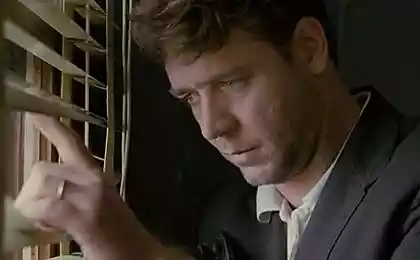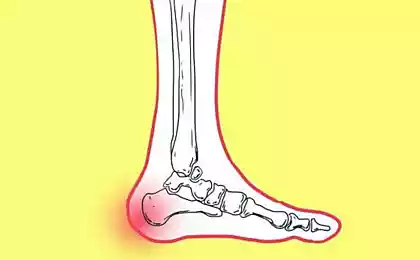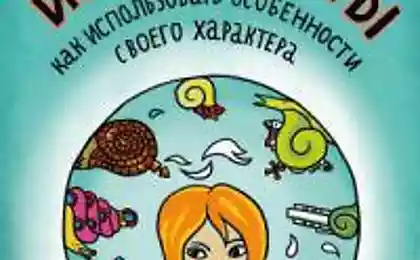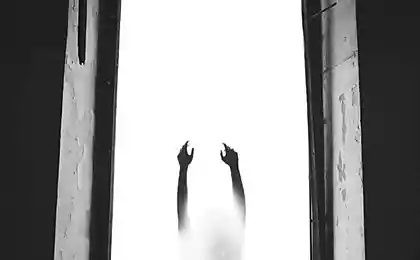994
Books that have been banned
Often the work, frankly describing this or that problem, are subject to excessive censorship. Sometimes they affect someone's religious or moral principles, people plunged into shock and even provoke mass unrest. Most of these books banned in several countries. We offer you eight of these books.
1. "Slaughterhouse-Five»
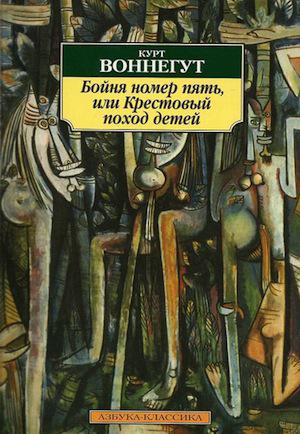
Author - Kurt Vonnegut
While still very young, Kurt Vonnegut, after the bombing of the Japanese troops port Pearl Harbor voluntarily joined the armed forces of the United States. Soon, his regiment was transferred to Europe to participate in the Second World War, and it so happened that in the course of hostilities Vonnegut was captured. Shel year 1944, and the war was almost over. However, Vonnegut spent almost a year in Dresden, where he worked at the plant for the production of vitamin syrup for pregnant women. During the bombing, he was well-known in Dresden.
Vonnegut survived miraculously. After the tragedy, he had to pull out thousands of corpses from the wreckage of buildings. All of these events occurred in his life, made an indelible impression on him, and after Vonnegut vowed never to take up arms.
Already a recognized writer, Vonnegut decided to write about these events - for this he met with his former brother-soldier Bernard O'Hare. Bernard's wife was furious to learn that Vonnegut was going to write about the war. She said that such books do not have the right to exist, because the boys are inspired by them and then go to war, without being aware of the report that do - and die. Vonnegut promised her a book called "The Children's Crusade" and noted that he personally did not see anything romantic in the war.
"Slaughterhouse-Five" - the book does not really romanticize war. Vonnegut very clearly sets out its view that the bombing of Dresden Air Force US was not necessary - the city did not have any strategically important objects, and its population consisted of civilians and prisoners of war.
The war in the novel appears as a manifestation of senseless violence, and Vonnegut mocks stereotypes entrenched in the culture of the "heroes" and "tough guys." Curiously, the bombing of the novel itself is hardly described - the author sees in the incident nonsense that has no value void that is impossible to describe even audibly.
Many people were in favor of a ban of the book, accusing the book itself and its author vulgarity, brutality, abuse of profanity, immorality and unpatriotic. In some countries, the book was banned in the end - anti-militarist sentiment is not too beneficial to governments.
2. «The Satanic Verses»
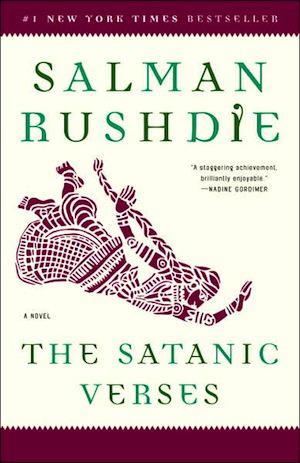
Author - Salman Rushdie
The book belongs to the genre of magical realism, its main character - an Indian immigrant to modern Britain. By the way, Rushdie himself an immigrant from India, now living in the United Kingdom.
The heroes of the book see angels, moved in time and space. At first glance, everything is very innocent, and nothing wrong with the text does not contain. However, just a week after its first publication, some governments began to demand to withdraw the book from sale and ban. And in many countries around the world banned the book does, and its distribution, or even reading prosecuted.
For example, in Venezuela, read "The Satanic Verses" threatens imprisonment for up to 15 months in Japan - a serious penalty, and Pakistan and India have been mass demonstrations against Rushdie, caused the death of a civilian. Moreover, Iran's head writer for a reward, now stands at $ 3, 3 million.
What's in this book? It is closely intertwined with religion, in particular, it is not a very favorable side shows Islam. Moreover, Rushdie touched on the theme of the complexity of assimilation in a foreign country, and the gradual loss of their own roots. It seems to be okay, however, Rushdie - a master of words, and it affected craftsmanship feelings of millions of people.
6. "Brave New World»
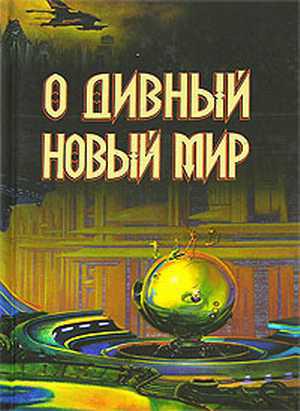
Author - Aldous Huxley
The novel "Brave New World" - one of the first works that can be attributed to the genre of dystopian. The novel describes a consumer society, where people live in the state, which unites the whole planet under a single government. Consumption in this society became a cult, and "god" - Henry Ford. People there grow on chelovekofabrikah and at the stage of embryonic development are divided into castes depending on the level of intelligence.
The book was published in 1932 and affected those problems, and worried that people of that time: the widespread industrialization, the loss of individuality and humanity, and the division of society into classes depending on the financial wealth and intelligence. The fact that all these problems are presented in the novel deliberately exaggerated, and, in addition, the text contains a number of allusions - for example, a slightly distorted names of real politicians.
The novel was banned in some US states, Ireland and several other European countries - in the opinion of the censors, the book created overly negative emotional background. In addition, people are not able to adequately perceive intentionally satirical manner of presentation. Later bans lifted, and the 30 years Huxley wrote an article, which noted with regret that the company is moving to a "brave new world" even faster than he thought.
7. "Naked Lunch»
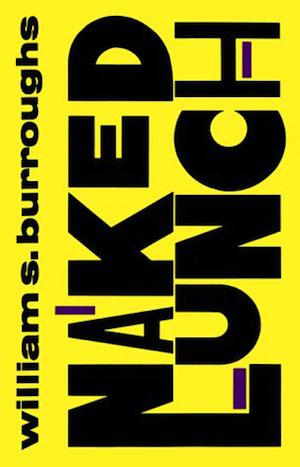
In "Naked Lunch" affected almost all topics that are considered socially reprehensible: pedophilia, violence, pornography, homosexuality, crime and drug addiction. In the USA it was banned, primarily because of the explicit scenes of pedophilia and infanticide.
Rare instances, leaked to the press, were seized across the country up to the year 1963 (the book was published in 1959). Publishing, risked to publish a book, lawsuits were filed, as the book gives the impression of propaganda - too authentically described the experiences of the hero-addict.
Prosecuted and subjected Burroughs himself, but in 1966 his lawyer during the trial brought a detailed analysis of each chapter of the work and was able to prove that the book is not obscene. However, in some states it was forbidden to publish a few more years.
8. "Fahrenheit 451»
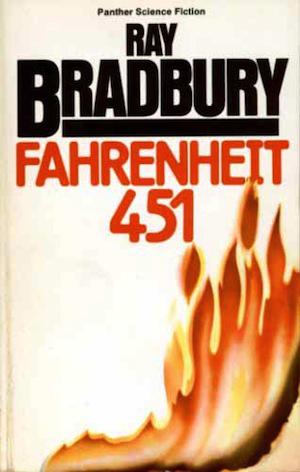
Author - Ray Bradbury
The novel describes a consumer society where printed books prohibited by law to storage and distribution. If the book is from any citizen, they burn special fire units together with the house culprit. Bradbury in his novel speaks of spiritual impoverishment of society and the substitution of moral and spiritual values and describes the material world, where consumption is considered to be the greatest good.
Censorship novel underwent another stage of editing: in particular, few know that the original have been removed from various expletives, references to abortion and other aspects. Bradbury even had to completely rewrite the two chapters - only if the book has been approved for distribution in libraries.
However, in bookstores sold and full, "adult" version of the product. Then, for some time ceased to publish this version, and then it appeared in print only in 1980.
1. "Slaughterhouse-Five»

Author - Kurt Vonnegut
While still very young, Kurt Vonnegut, after the bombing of the Japanese troops port Pearl Harbor voluntarily joined the armed forces of the United States. Soon, his regiment was transferred to Europe to participate in the Second World War, and it so happened that in the course of hostilities Vonnegut was captured. Shel year 1944, and the war was almost over. However, Vonnegut spent almost a year in Dresden, where he worked at the plant for the production of vitamin syrup for pregnant women. During the bombing, he was well-known in Dresden.
Vonnegut survived miraculously. After the tragedy, he had to pull out thousands of corpses from the wreckage of buildings. All of these events occurred in his life, made an indelible impression on him, and after Vonnegut vowed never to take up arms.
Already a recognized writer, Vonnegut decided to write about these events - for this he met with his former brother-soldier Bernard O'Hare. Bernard's wife was furious to learn that Vonnegut was going to write about the war. She said that such books do not have the right to exist, because the boys are inspired by them and then go to war, without being aware of the report that do - and die. Vonnegut promised her a book called "The Children's Crusade" and noted that he personally did not see anything romantic in the war.
"Slaughterhouse-Five" - the book does not really romanticize war. Vonnegut very clearly sets out its view that the bombing of Dresden Air Force US was not necessary - the city did not have any strategically important objects, and its population consisted of civilians and prisoners of war.
The war in the novel appears as a manifestation of senseless violence, and Vonnegut mocks stereotypes entrenched in the culture of the "heroes" and "tough guys." Curiously, the bombing of the novel itself is hardly described - the author sees in the incident nonsense that has no value void that is impossible to describe even audibly.
Many people were in favor of a ban of the book, accusing the book itself and its author vulgarity, brutality, abuse of profanity, immorality and unpatriotic. In some countries, the book was banned in the end - anti-militarist sentiment is not too beneficial to governments.
2. «The Satanic Verses»

Author - Salman Rushdie
The book belongs to the genre of magical realism, its main character - an Indian immigrant to modern Britain. By the way, Rushdie himself an immigrant from India, now living in the United Kingdom.
The heroes of the book see angels, moved in time and space. At first glance, everything is very innocent, and nothing wrong with the text does not contain. However, just a week after its first publication, some governments began to demand to withdraw the book from sale and ban. And in many countries around the world banned the book does, and its distribution, or even reading prosecuted.
For example, in Venezuela, read "The Satanic Verses" threatens imprisonment for up to 15 months in Japan - a serious penalty, and Pakistan and India have been mass demonstrations against Rushdie, caused the death of a civilian. Moreover, Iran's head writer for a reward, now stands at $ 3, 3 million.
What's in this book? It is closely intertwined with religion, in particular, it is not a very favorable side shows Islam. Moreover, Rushdie touched on the theme of the complexity of assimilation in a foreign country, and the gradual loss of their own roots. It seems to be okay, however, Rushdie - a master of words, and it affected craftsmanship feelings of millions of people.
6. "Brave New World»

Author - Aldous Huxley
The novel "Brave New World" - one of the first works that can be attributed to the genre of dystopian. The novel describes a consumer society, where people live in the state, which unites the whole planet under a single government. Consumption in this society became a cult, and "god" - Henry Ford. People there grow on chelovekofabrikah and at the stage of embryonic development are divided into castes depending on the level of intelligence.
The book was published in 1932 and affected those problems, and worried that people of that time: the widespread industrialization, the loss of individuality and humanity, and the division of society into classes depending on the financial wealth and intelligence. The fact that all these problems are presented in the novel deliberately exaggerated, and, in addition, the text contains a number of allusions - for example, a slightly distorted names of real politicians.
The novel was banned in some US states, Ireland and several other European countries - in the opinion of the censors, the book created overly negative emotional background. In addition, people are not able to adequately perceive intentionally satirical manner of presentation. Later bans lifted, and the 30 years Huxley wrote an article, which noted with regret that the company is moving to a "brave new world" even faster than he thought.
7. "Naked Lunch»

In "Naked Lunch" affected almost all topics that are considered socially reprehensible: pedophilia, violence, pornography, homosexuality, crime and drug addiction. In the USA it was banned, primarily because of the explicit scenes of pedophilia and infanticide.
Rare instances, leaked to the press, were seized across the country up to the year 1963 (the book was published in 1959). Publishing, risked to publish a book, lawsuits were filed, as the book gives the impression of propaganda - too authentically described the experiences of the hero-addict.
Prosecuted and subjected Burroughs himself, but in 1966 his lawyer during the trial brought a detailed analysis of each chapter of the work and was able to prove that the book is not obscene. However, in some states it was forbidden to publish a few more years.
8. "Fahrenheit 451»

Author - Ray Bradbury
The novel describes a consumer society where printed books prohibited by law to storage and distribution. If the book is from any citizen, they burn special fire units together with the house culprit. Bradbury in his novel speaks of spiritual impoverishment of society and the substitution of moral and spiritual values and describes the material world, where consumption is considered to be the greatest good.
Censorship novel underwent another stage of editing: in particular, few know that the original have been removed from various expletives, references to abortion and other aspects. Bradbury even had to completely rewrite the two chapters - only if the book has been approved for distribution in libraries.
However, in bookstores sold and full, "adult" version of the product. Then, for some time ceased to publish this version, and then it appeared in print only in 1980.




